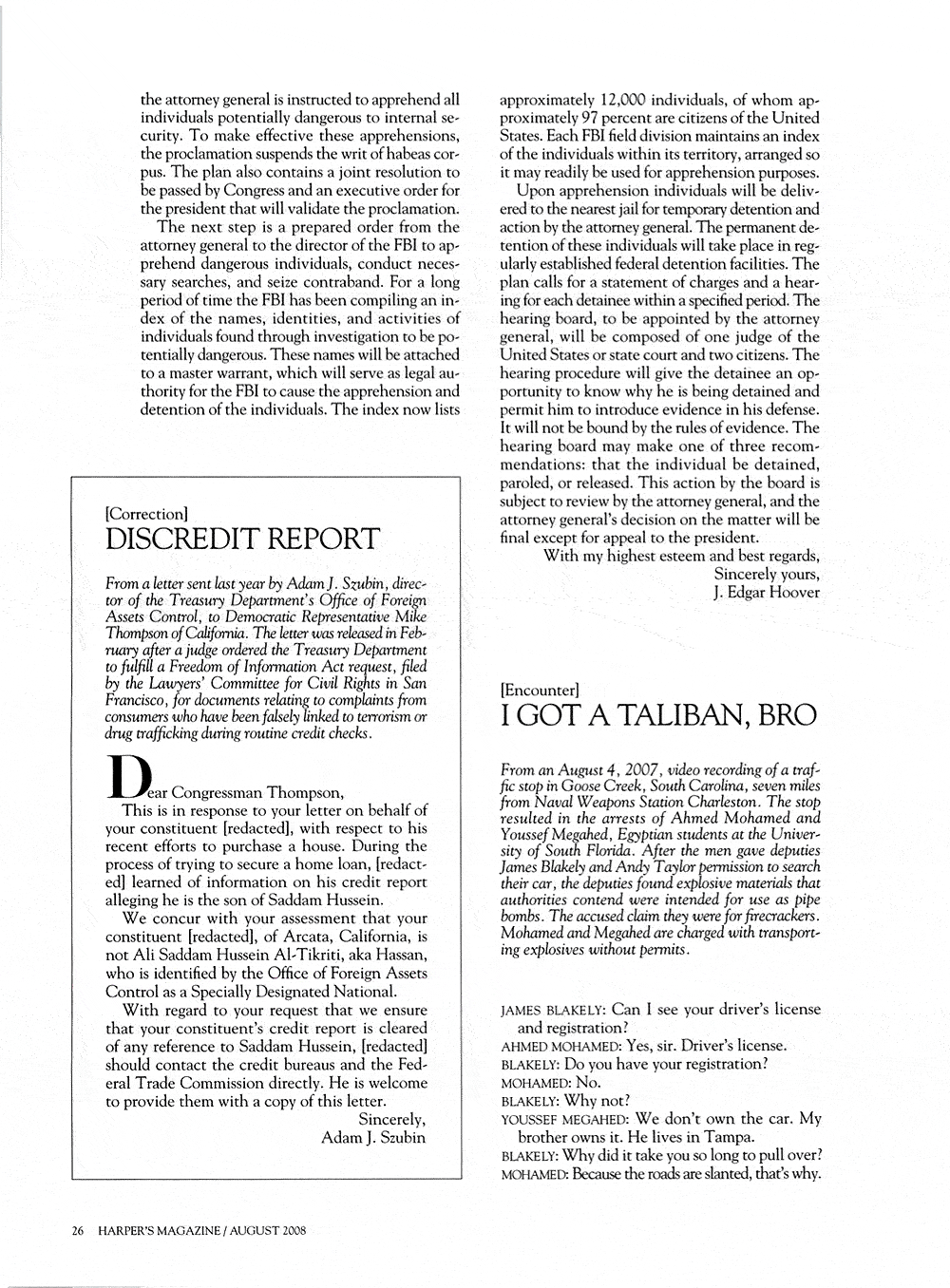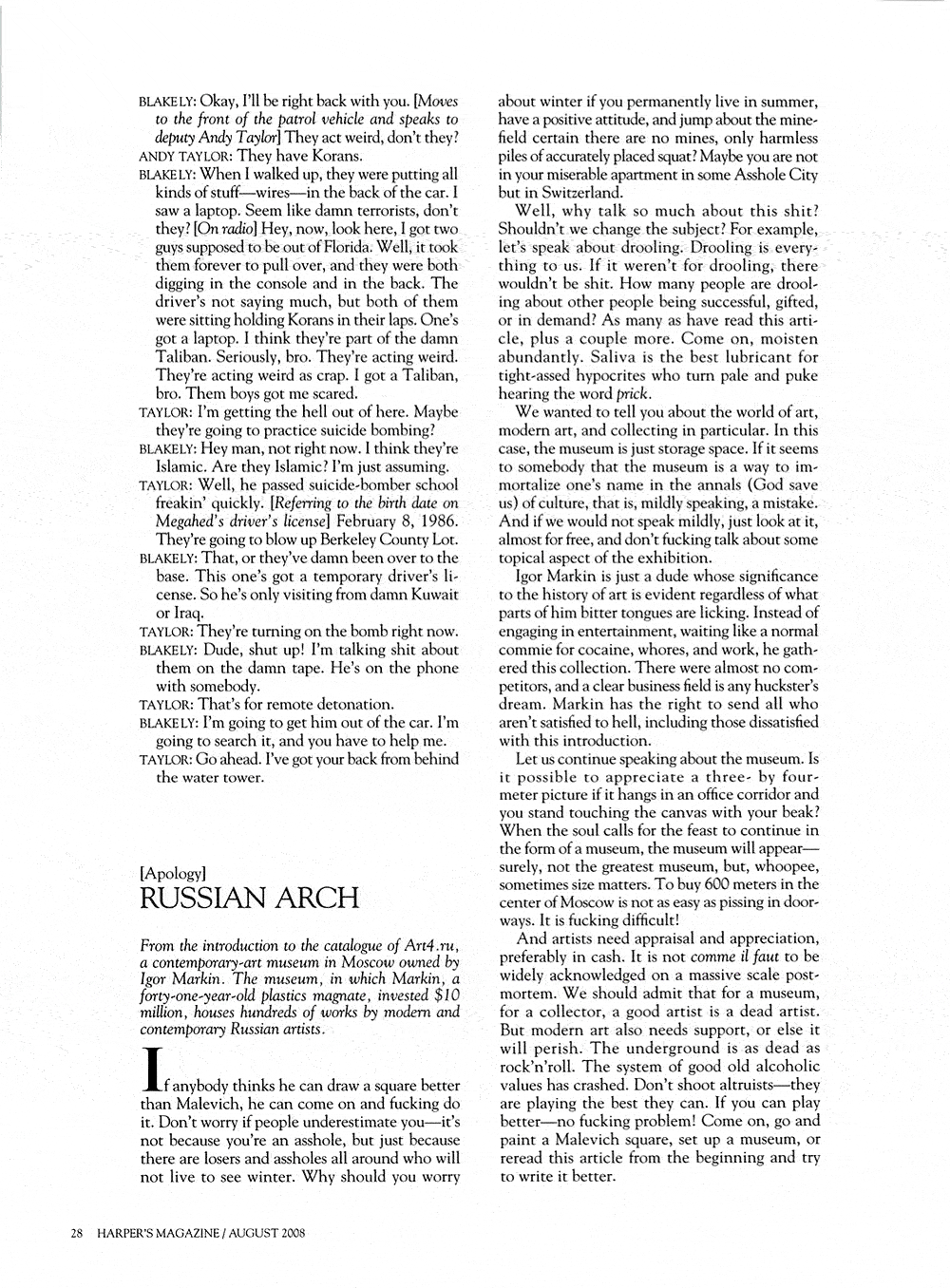Wade Fulmer, Columbia
member of Veterans for Peace
Beth, a mother and grandmother, is a Military Families Speak Out member who delivered this speech at a week ago conference.
The battles of blood for oil are far from over. Our soldiers and families and Iraqis continue to suffer by the unending occupations of two wars of six and seven years, killing our own, bomb bomb bombing McCainiac style Iraqi children and families by way of the madness of Administration and the lack of a Congress of conscience to govern by Our Own Constitution. The Congress continues bankrupt funding of carnage and refuse to hold Captiol Hill war criminal politicos responsible for killing and maiming war crimes against humanity. There is a Constitution, yes, that must be revived, lived! There is no Congress with the will to speak for peoples, to end their sufferings, deployment extensions, and stop loss betrayals of those who serve.
OUR America must strongly voice the inner outrage, must rebell against pharisean, unchristian, illegal, unconscionable war, its fear mongering myth, and the damn the peace arrogance of warful officials who are not representatives of the People.
We on this 4th of July must reclaim and demand the rights of truth and Constitution to protect and defend for the care and honorable service that our soldier loved ones seek, to end the abusive murders of families and sovereign peoples. There is no obligation nor honor nor empathy as they suffer and die for the corporate war profits machine who bribe the Congress for monied bloodshed. Confront and hold officials accountable. Hold, protect and defend soldiers and families as your loved ones.
********
Beth’s Speech
I have four scary words for you: we need to talk.
I need to share with you some of my experiences with Military Families Speak Out, a national organization with 4,000 members whose loved ones have served or are serving in the military.
And here’s the problem — unless you have skin in the game — and members of MFSO do, you may not understand what’s really at stake here, or even care.
But we need each other.
Some of you may think that anyone who goes into the military is either stupid, blood-thirsty or deserving of what they get for fighting in an illegal and immoral war. But we know them as kids needing a job, health care or educational benefits. Good men and women just like your brothers and sisters — sons and daughters.
We, as a nation, have been sheltered from the reality of this war, but I’d like to share some of our experiences with you. Share what it is like to see the young Marine with his face burned beyond recognition, just eyes and a mouth, his ears and an arm missing — looking lost in a hospital cafeteria.
To share with you what it’s like to spend Mother’s Day at Arlington Cemetery, accompanying mothers who go to visit their only children, who lie buried among sea of other parents’ children who will never again know the embrace of their mother. Each is someone’s beloved child.
We need you to listen to us. We need you to HEAR us.
Hear about Pierre Piche, who was killed in a helicopter crash in 2004. When Pierre wrote home to his family, he didn’t ask for things for himself, but rather for food to take care of the many stray animals around him. The last picture of him is with a donkey that had wandered into his tent. I think of him, and I see the picture of him holding a tiny puppy, with a wide smile across his face.
I think of my own daughter-in-law, who wrote that the children at the nearby refugee camp in Afghanistan had no warm clothes for the approaching winter, and asked us to send coats. And my MFSO friends did, until they had to find a storage place for the many, many boxes. I see a picture of her standing in the blowing snow with smiling children in only sweaters and sometimes barefoot. Her own three children were at home in Alaska.
As a friend wrote to me recently, if you have a loved one in the military and dare proposing peace, you get a double whammy. You get criticized by many in the peace movement because your loved one is in the military, and then you are criticized by those believe you are undermining the morale of the troops by protesting the war.
The constant fear, 24/7, that harm will come to our family members will wrap around your heart until you feel sometimes you cannot breathe. When a loved one shares the deepest wounds, it is doubly painful. Painful that they are experiencing this, and painful that you can do nothing about it.
Here are the words of one of our MFSO sons:
The weather here is cooling off a bit, but Ramadaan has brought an increased level of bullshit in our area. I’m so angry. Angry isn’t the right word, but it’s simple. We’ve had a busy week. A busy week. Snipers, IEDs, EFPs, Mortars. I’ve seen the medevac chopper land in our compound three or four seperate times, and it starts to take it’s toll. Chunks of flesh. What the hell is chunks of flesh? Disgusting. Bones coming out of the body. Blood soaked stretchers. The cries in the darkness of grown men. I saw a grown man come up behind his buddy and hold him like sweethearts do. He rested his chin on the shoulder of his friend, and they wept together. What is this all about? I’m confused. I’m angry. And, I’m fighting a war on two fronts. One is plenty enough for one man to handle.
I’m still alive. Still here and counting the days. I miss you…
His mother went on to write:
This is what my son wrote to me today.
Now, the other “war” he is fighting is at home — where his wife has developed a “relationship” with an old love.
This brings up another issue — the effect of multiple deployments on the families. This is typical of several emails I have received from MFSO members:
Since everyone has a divorce story you can add my son. His divorce will be final in July… My daughter-in-law told me he had changed so much when he came back the first time but she was willing to stick with it. Now I have to wonder how much more his personality will have altered when he comes back from this second trip.
He still tells me he loves me and calls me mama so there is still some of my precious son in there, but until we are face to face, I will be left to wonder.
The entire family is affected when someone is deployed. Those who are affected most of all are the Gold Star families — -those who have lost a loved one. From one of our Ohio Gold star members:
I know my brother was murdered by his own government – first for getting him into an illegal war that should never have happened, and, second, for not giving him the equipment and tools to do the job they’d given him.
Every time one of our rights or freedoms is ripped away from us, it hurts more because I know my brother dedicated his adult life to making sure we had them. He loved the ideal of service to his country, as most soldiers do. To give up what he was willing to die for is a slap in his face and is a tear on mine.
It hurts to tell people that he’s dead. Saying the words is an acknowledgement, a dagger to any fantasy you might have about where he is and what he’s doing that you use to get by.
No, the pain doesn’t diminish. You just learn to live all over again. Thank goodness for my support network – family, friends and other military and Gold Star families – who help keep my knees from buckling and my heart from giving up.
To us Gold Stars, I think, it often feels like the whole world is walking by and ignoring this pain.
In Loving Memory of US Army SSG Edward W. Carman
Nov. 1976 – Apr.2004
As Military families, we stand to lose more from this failed war than any one other than the Iraqis, whose deaths and casualties and suffering goes unnoticed even more than the sacrifice of our own troops. More than 40 Iraqi refugees have been settled in Dayton since January, and I listen to the stories of their suffering with great sadness until I think my own heart can no longer hold any more pain. And you know who has really stepped up more than any other group to really help and support these refugees in our community? It has been veterans and military families.
Military families’ and veterans’ voices are an asset to the movement BECAUSE we have so much to lose — those we love. We will never grow bored with this fight or move on to other issues.
We will never give up this struggle. Support the troops — bring them home now!



